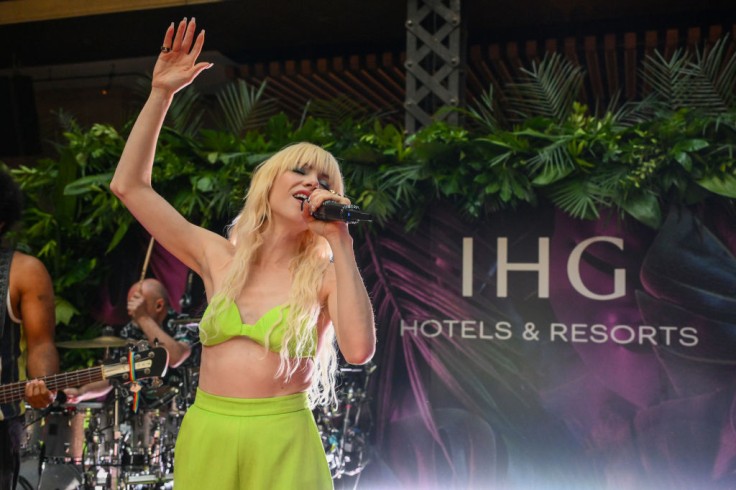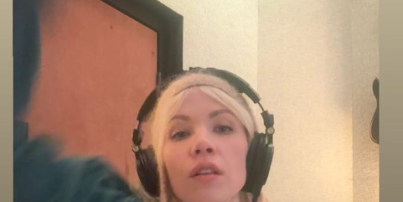
What is the first thing that comes to mind when someone mentions Carly Rae Jepsen? For the vast majority of people, the first thing to spring to mind is likely the Canadian singer's 2012 smash hit "Call Me Maybe" which dominated airwaves, going on to become the best-selling digital single of its year of release, and, currently sitting at over 1 billion streams on Spotify, is one of the best selling singles of all time.
Many incorrectly assume Carly Rae Jepsen is a one-hit wonder, but that couldn't be further from the truth. In fact, many will be surprised to learn that Jepsen is well regarded for her experimental production, use of odd time signatures, and deeply personal approach to songwriting. The Canadian singer-songwriter is still making music and has successfully made the transition from mainstream pop star to an indie-pop critical darling with a cult-like fanbase. NPR recently named Jepsen's track "Anything To Be You" in its list of the best songs of 2023, calling the song "...one of the year's most infectious bops, wild and woozy with a slightly off-kilter backbeat."
Earlier this year, Jepsen's song "Kollage" was subject to a surprised reaction from those unacquainted with her music, with TikTok users expressing disbelief that the track belonged to "the call me maybe girl." One TikTok has user id @verboten.intern enacting a skit that asks "guess who this song is by" with the second party guessing indie and alternative artists like The Free Nationals and Kali Uchis, only to make the shocking discovery that the song is by Carly Rae Jepsen. This comes one year after the surprise virality of "The Loneliest Time '' a year prior.
Those familiar with Jepsen's career will also recall the widespread critical acclaim for her third studio album "Emotion." Annie Zaleski of The A.V. Club stated: "If there's any justice, Emotion will propel her to superstardom-but even if it doesn't, she can at least rest easy knowing she made one of 2015's most interesting, effervescent records." James Rettig of Stereogum wrote that the album's success was "...predicated on word-of-mouth" and the insistence of listeners to spread the good news: "Hey friends, did you know the singer of "Call Me Maybe" made the best album of the year? No, seriously! Check it out." Similarly, Carrie Battan of The New Yorker wrote of Emotion's critical praise: "Jepsen, the woman behind one of the biggest songs of this century, now resembles someone whom she never had the opportunity to become at the beginning: an indie darling. She is something like a reverse-order 'mindie,' generating underground (or, at the very least, critical) cred long past her career's incubation period." Fans of Carly Rae Jepsen quickly declared her the Queen of everything and petitioned to give her a sword, spawning a concert tradition that persists years later.
Despite the acclaim, many do not see past her 2012 hit, and, unsurprisingly, are shocked to find that the majority of her fanbase consists of men. Recently, an image has surfaced online depicting the overwhelmingly male crowd at a Carly Rae Jepsen concert, leaving X (formerly Twitter) users questioning "Where are the women?" and "Why does Carly Rae Jepsen's fan base consist almost exclusively of men?" While it is true that Jepsen has a very dedicated fanbase of gay men, she also attracts a lot of attention from straight, so-called "music bros."
Writer Eric Thurm interviewed over 60 men to answer the question of why grown-ass men get so emotional about Carly Rae Jepsen. One claimed to have gotten into the singer after discovering a slowed-down version of "Call Me Maybe" that led him to see it as "more than a meme" with another stating: "This is why you see kids in Death Grips T-shirts at her shows - she almost acts as a gateway for irony-poisoned dudebros to get into music that genuinely makes them feel happy." Thurm writes "...so much of male Carly Rae Jepsen fandom depends on concrete proof of legitimacy. Men sent me photos of their tattoos, screenshots of their listening statistics on streaming sites, photos of themselves with Jepsen at fan meet-and-greets, descriptions of flights they'd taken to see her perform..."
Jepsen is less associated with the young, female audience one might expect than the stereotypical music nerd. The admiration from music enthusiasts contributes to her status as a favorite among critics, and the fondness male Carly Rae Jepsen fans have for sharing Jepsen-related lore is partly rooted in this. Her standing in critical circles allows for the acceptance of straight men. In contrast to many female pop stars who attract large numbers of gay male fans, Thurm notes that the attention drawn to Jepsen's straight male fans stems from their perceived peculiarity within the realm of pop music.
Carly Rae Jepsen has emerged as a multifaceted artist, transcending the initial perception tied to her breakout hit "Call Me Maybe." Despite prevailing misconceptions of being a one-hit wonder, Jepsen has evolved into an indie-pop icon.
The surprising revelation that a significant portion of her fan base comprises of straight, so-called "music bros'' adds an intriguing layer to the Carly Rae Jepsen phenomenon. It is evident that male fans find a unique connection with her music, often using concrete proof of devotion to validate their fandom.
While her acclaim may be overshadowed by the persisting image of "Call Me Maybe," Carly Rae Jepsen's influence reaches far beyond, creating a space where music enthusiasts, regardless of gender or stereotypes, can appreciate her artistry. In dismantling preconceived notions, Jepsen not only challenges the norms of pop music but also showcases the power of music to unite diverse fanbases under the banner of genuine appreciation. She is, indeed, more than the "Call Me Maybe" girl - she is an enduring force in the ever-evolving landscape of music, captivating audiences across unexpected demographics.
© 2025 MusicTimes.com All rights reserved. Do not reproduce without permission.







